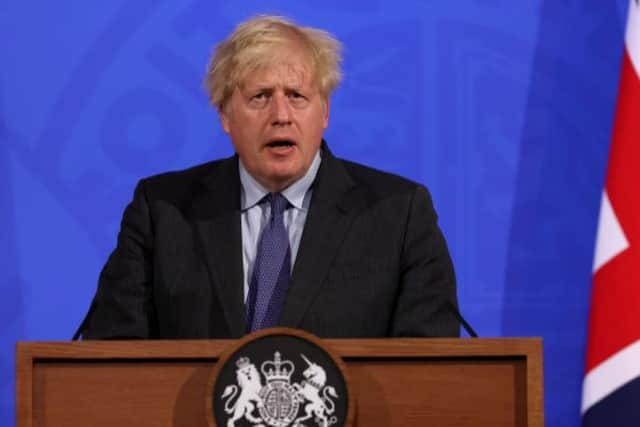Yorkshire virologist criticises Government for setting 'arbitrary' deadline for lifting restrictions


All remaining restrictions were due to be lifted on June 21, but this week Prime Minister Boris Johnson said many of them will remain in place until July 19 due to a recent surge in Covid-19 cases which has been driven by the Delta variant.
Dr Stephen Griffin from the University of Leeds, welcomed the delay but criticised the Government for setting another “arbitrary date”.
Advertisement
Hide AdAdvertisement
Hide AdHe said: “It is just slightly crazy. I think they should be setting a series of conditions by which we move forward, not just arbitrarily saying this day in July is when everything will be fine.”


The latest figures show 53,701 people have tested positive for the virus over the last seven days, 1,067 have been admitted to hospital and 63 have died within 28 days of a positive test.
Dr Griffin believes the number of Covid-19 cases will “skyrocket” if the remaining restrictions are lifted too soon and this will lead to more hospital admissions and more people suffering with the debilitating condition known as Long Covid.
“There is an endpoint to this which is when we have enough people vaccinated that the virus starts to really dampen down,” he said.
Advertisement
Hide AdAdvertisement
Hide Ad“But the question is what will happen on the road to that and if we let this thing go by completely unlocking, I’m very concerned about what might happen because we could potentially see many, many more cases than we might expect.
“It’s a bit of a misconception that this virus only makes older people and people with health conditions unwell. That is absolutely not the case.”
Dr Griffin added: “At the moment, the NHS is absolutely on its knees, having to catch up with the backlog from before, and it can’t take another strain.”
It comes as evidence published by the Government suggests that people infected by the Delta variant, which makes up more than 90 per cent of new cases in the UK, are twice as likely to end up in hospital, compared to people infected with the Alpha variant.
Advertisement
Hide AdAdvertisement
Hide AdHowever, new Public Health England research shows the Pfizer-BioNTech vaccine is 96 per cent effective at preventing people infected with the Delta variant from requiring hospital treatment and the Oxford-AstraZeneca vaccine is 92 per cent effective.
The latest Government statistics show 79.4 per cent of the adult population (41.8m) have received one dose of a Covid-19 vaccine and 57.4 per cent (30.2m) have had two jabs.
Speaking in Parliament, health secretary Matt Hancock said the easing of restrictions was delayed because the risk had been "fundamentally changed" by the variant, which was first detected in India.
He added: "It is with a heavy heart, and faced with this reality, that we’ve made the difficult decision not to move ahead with Step 4 next week. Instead, we will pause for up to four weeks, until July 19, with a review of the data after two weeks.
Advertisement
Hide AdAdvertisement
Hide Ad"During this crucial time, we’ll be drawing on everything we know works when fighting this virus and we’ll use the extra time to deliver the extra protection we need.
"Despite the incredible uptake we’ve seen in this country, there are still people we need to protect.
"1.3 million people who are over 50s, and 4.5 million over 40s, have had a first jab but not yet a second.
"This pause will save thousands of lives, by allowing us to get the majority of these second jabs done before restrictions are eased further."
Comment Guidelines
National World encourages reader discussion on our stories. User feedback, insights and back-and-forth exchanges add a rich layer of context to reporting. Please review our Community Guidelines before commenting.